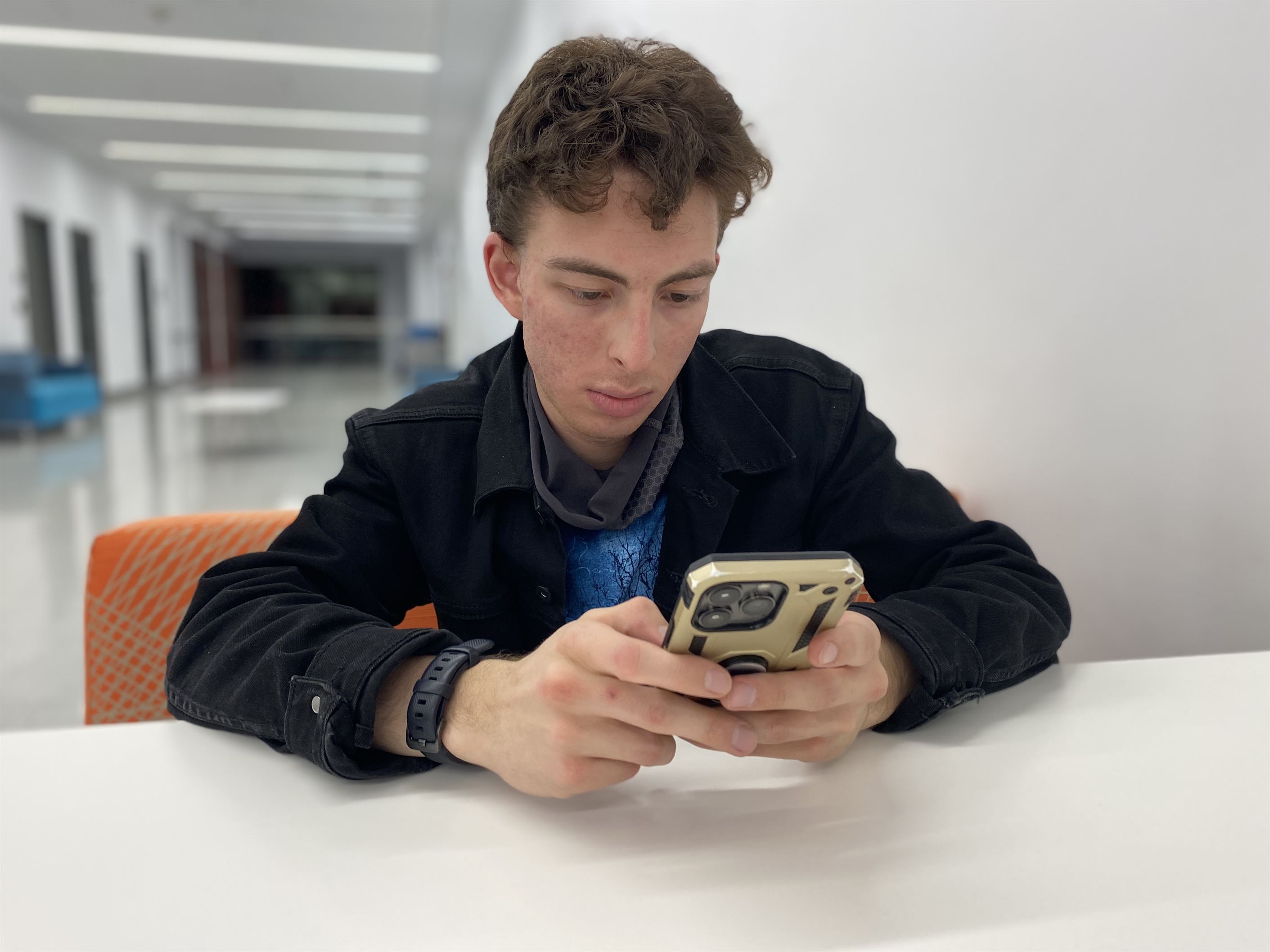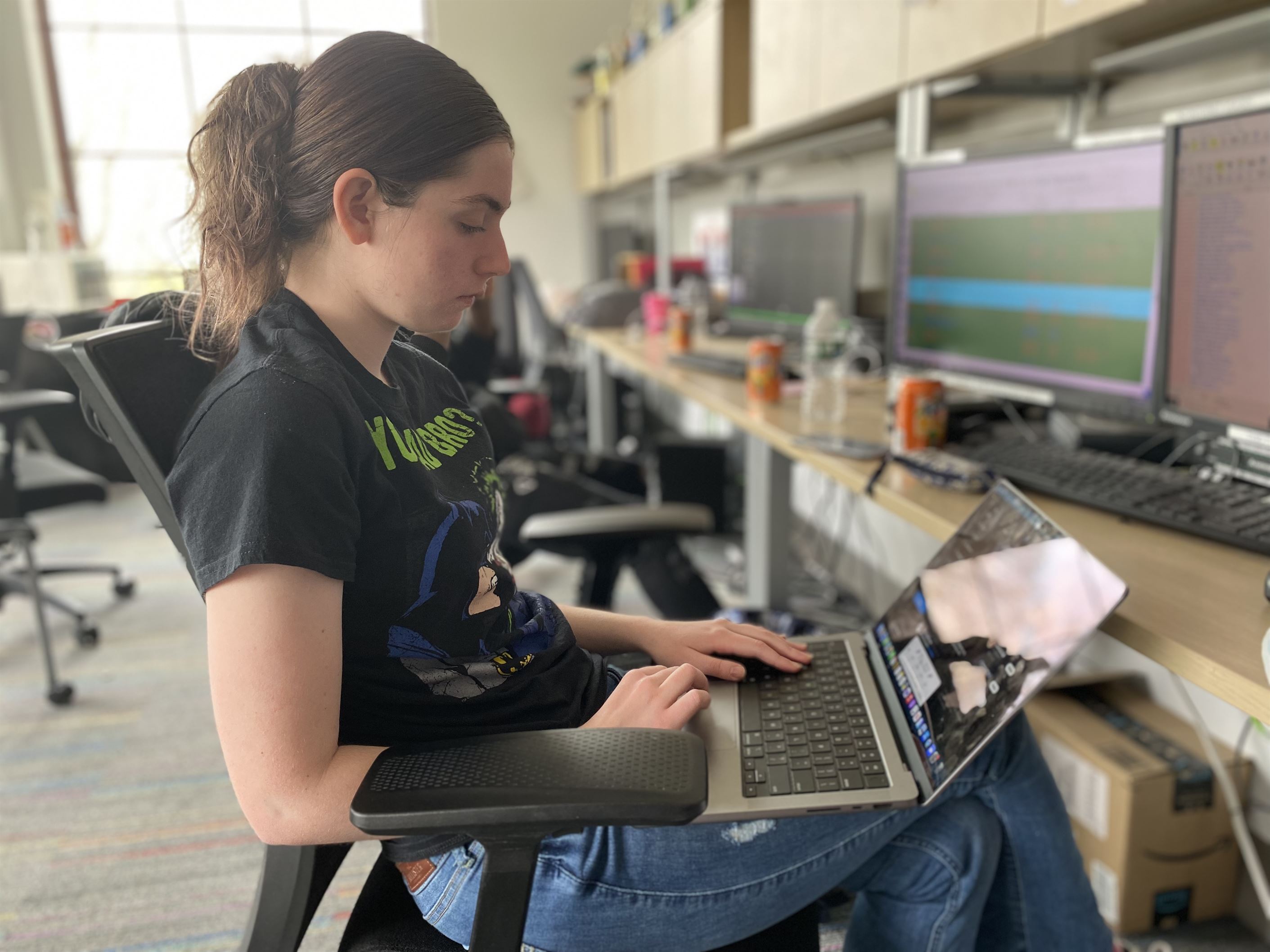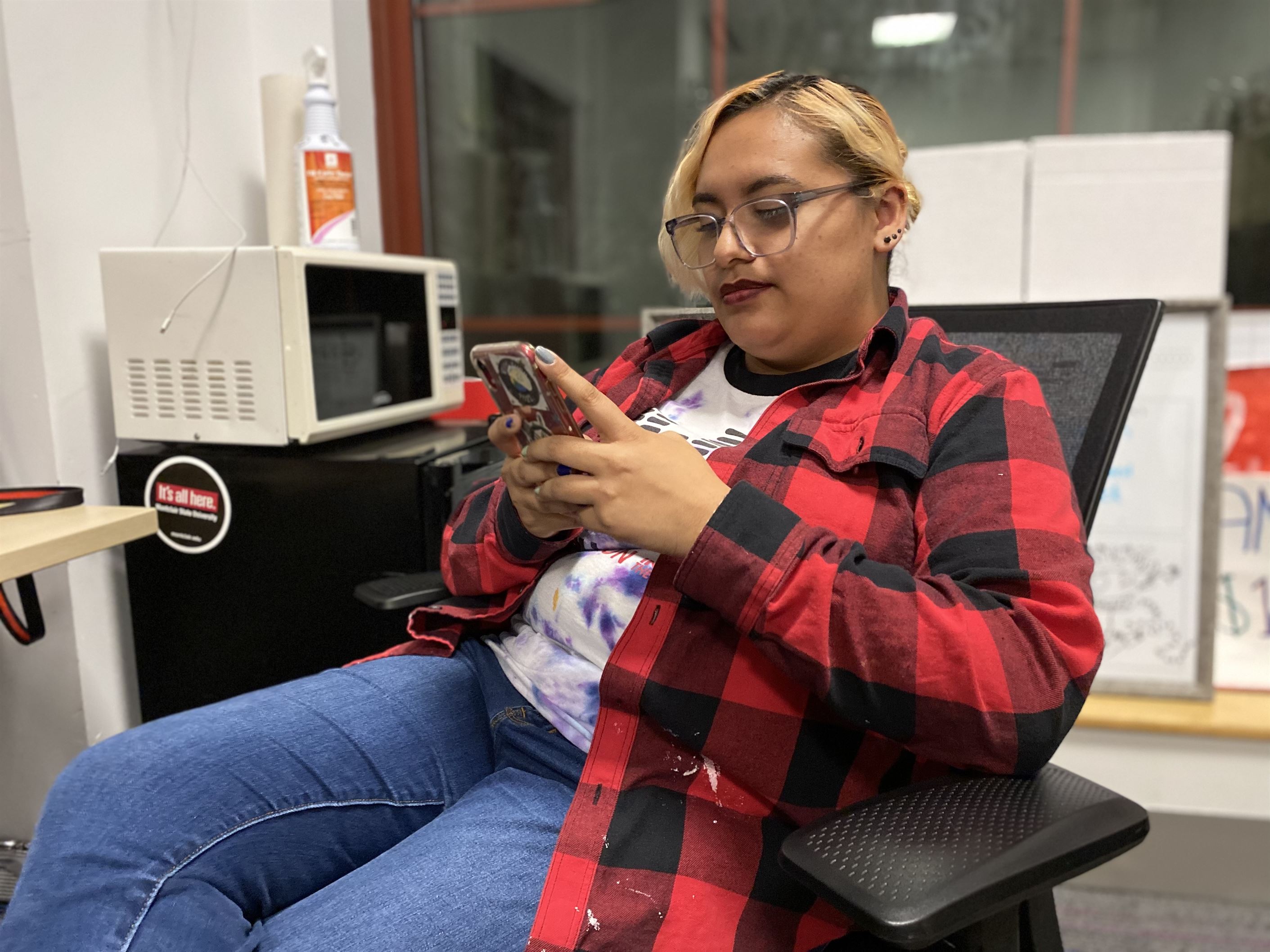#FocusDisruption is a collaboration of all the media outlets within Montclair State’s School of Communication and Media. Our goal is to report stories that highlight the effects or disruption of the last two years and the solutions that have come out of it. All aspects of day-to-day life have been altered but we will be primarily focusing on how mental health, education and the workplace have changed.
Can you imagine not using social media? Many would shudder at the very thought. Our phones are always by our sides or in our hands. Constantly scrolling and refreshing, social media has become a part of our identities and who we are.
That hasn’t changed due to the coronavirus (COVID-19) pandemic. We have spent more time on platforms like Instagram and TikTok since we went into lockdown. But the increased usage has had different effects on college students’ mental health, from the way we perceive ourselves to the way we communicate with each other.

Kyle Pepitone, a senior animation major, said his social media usage increased once the world went into lockdown.
Sal DiMaggio | The Montclarion
Kyle Pepitone, a senior animation major, said his social media usage increased once the world went into lockdown.
“I’ve been using it more since the [COVID-19] pandemic than I think I have in the past,” Pepitone said. “I’ve definitely used it more than I did beforehand, but the problem is it’s not growing my own [career]. It’s just scrolling through social media.”
Lana Kalapodakis, a freshman film and television major, said this was true for her as well, so much so that she had to take breaks from social media.
“I’ve had multiple times even throughout the [COVID-19] pandemic where I had to stop and put [my phone] down and delete Instagram off my phone because it was just getting to the point where I was just feeling constantly bad about myself for no reason,” Kalapodakis said.
Candace Wilson, a licensed therapist based in Newark, New Jersey for Thriveworks, a mental health and therapy company, has noticed some trends in the past couple of years that came with the increased usage of social media. Body image and self-esteem are one of the biggest trends she sees.
“Some of the clients I’ve had have had body image issues based on what they’re seeing on TikTok or Instagram or whatever it may be. There is the idea that, ‘I have to fit this image,’” Wilson said. “I would say there’s a lot less self-love. People are more aware of perceived flaws.”

Lana Kalapodakis, a freshman film and television major, said that she suffered from body image issues due to her increased use of social media throughout the pandemic.
Sal DiMaggio | The Montclarion
Kalapodakis agreed with this sentiment.
“I’d look at a bunch of these other girls who went to my school and they would be so pretty, so well made up,” Kalapodakis said. “And I’m just over here dealing with all the zits on my face, trying to get them off.”
Pepitone has his own issues with self-esteem when it comes to seeing content that other artists put out compared to his own.
“Seeing everybody do stuff, which I considered loads better, really made my self-esteem take a dive and to a point where I think it’s almost irreplaceable by myself at least,” Pepitone said.
However, this was not the case for all college students. Some of them found that being on social media benefited their mental health in some ways.
Mari Zuniga, a senior communication and media arts major, said she became more confident in the way she looked and actually began to post more of herself on social media when the pandemic began.
“On social media, I felt more free,” Zuniga said. “I didn’t do it for the likes or anything like that. I don’t really care for the likes, but if someone did like [something], okay, cool … I just have more time on my hands to [post pictures of myself].”
Another trend Wilson brought up was how we communicated during the [COVID-19] pandemic, and how that has an impact on how we do so now.
“I believe social media has caused a decline in social interaction in general,” Wilson said. “People will text as opposed to calling. I’ve seen people sit side by side and text one another as opposed to actually speaking to one another.”
Kalapodakis described how the ways she communicated changed due to the increased use of social media during the COVID-19 pandemic.
“I don’t like talking to people I don’t know through a screen, but someone I do know, that can work,” Kalapodakis said. “Being out in person, sometimes it feels like it’s a lot and it somewhat made my anxiety worse. I felt like I, for a little while, forgot how to have a physical conversation.”

Mari Zuniga, a senior communication and media arts major, said her use of social media during the pandemic benefited her mental health in some ways.
Sal DiMaggio | The Montclarion
Zuniga, however, said she was grateful for social media for letting her communicate with her friends at all.
“It just brought us closer together as friends, because not only would we do FaceTime calls with a smaller group, but then in our Instagram group chat, we would send memes,” Zuniga said. “We would be talking almost every single day and it just brought us together. Just because we can’t see each other more doesn’t mean we have to stop texting.”
Based on her experiences with her college students, Wilson has some advice for college students when it comes to social media and mental health.
“Don’t be so reliant on [social media] for your self-esteem,” Wilson said. “Likes don’t matter that much. Bottom line, it sounds kind of corny, but you got to love yourself, flaws and all. Just because society says, ‘Oh, you’re supposed to do this at this age,’ it doesn’t mean you’re a failure if you don’t.”



